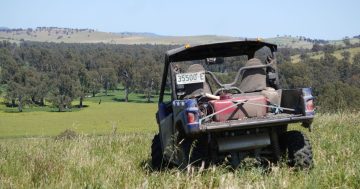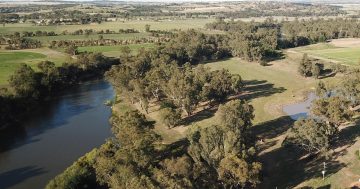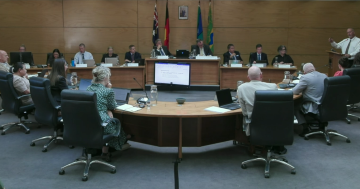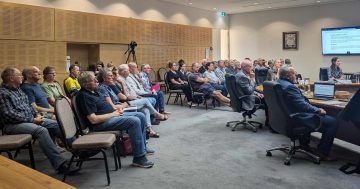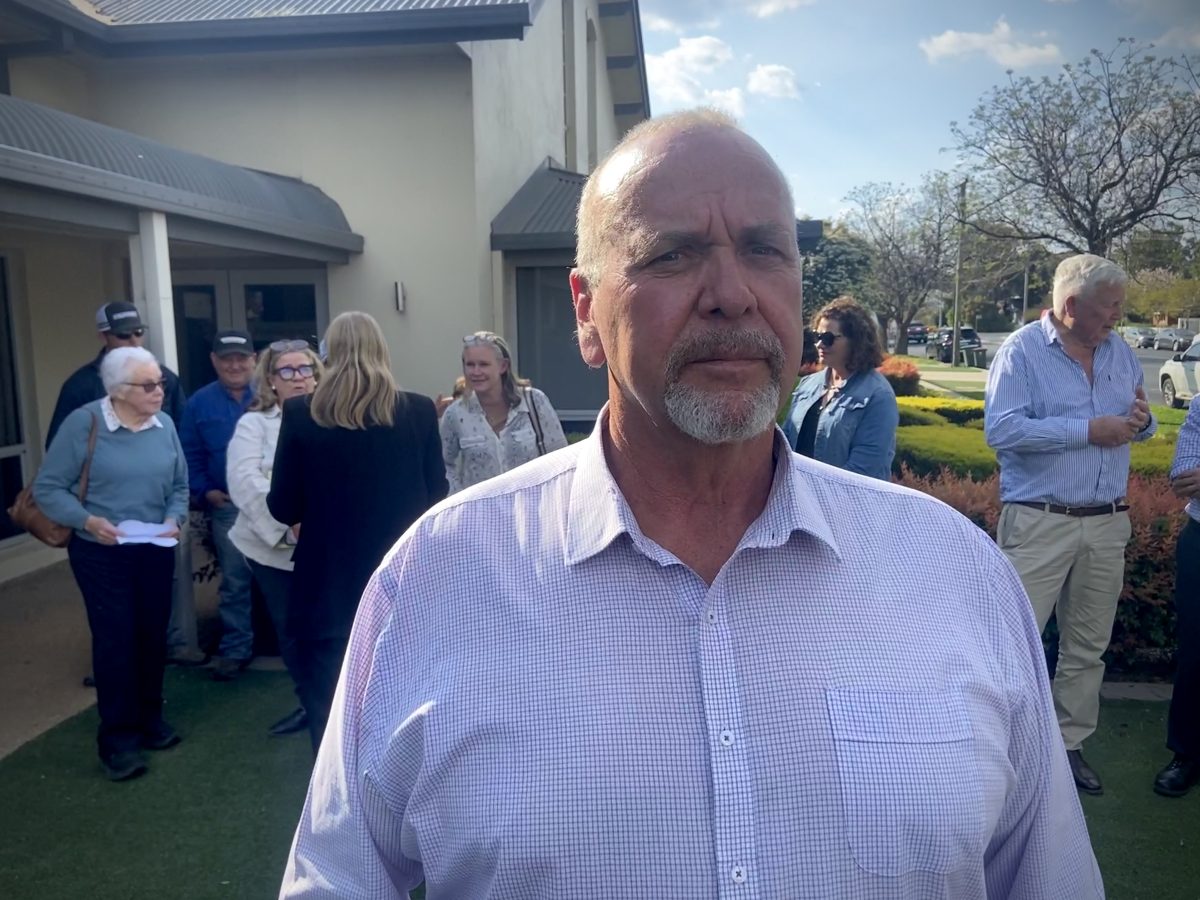
Farmer Paul Funnell described the aborted Landholder Negotiation Scheme meeting as a “box-ticking exercise”. Photo: Chris Roe.
Farmers on the Murrumbidgee River say they have been kept in the dark about a NSW Government plan to acquire flow easements along the riverfront to accommodate environmental water releases.
Dozens of frustrated landholders chose to boycott a hastily organised online forum on Wednesday (2 October) and instead gathered in Wagga to discuss the scheme that they say will impact their properties and livelihoods.
“To call it a ‘Landholder Negotiation Scheme’ is so farcical because none of us knew about it,” said Collingullly farmer Paul Funnell.
“We only found that there was even going to be a meeting here 10 days ago because one landholder had been handed a piece of paper confidentially.”
According to the NSW Department of Climate Change, Energy, the Environment and Water, the draft Landholder Negotiation Scheme (LNS) regulation will “outline the approach the NSW Government will take when negotiating voluntary agreements with landholders affected by future environmental water deliveries at higher flow levels, or under different regimes, than current operating practice.”
The scheme would allow the government to negotiate with landholders to acquire flow easements and, if no agreement can be reached, the water minister can decide to proceed with compulsory acquisition of the flow corridors “on just terms”.
A consultation period was opened last month to encourage feedback and “ensure stakeholders have access to the information they need to make their submissions” and one of several information sessions was planned for Wednesday, 2 October in Wagga.
Landholders allege that few of them were officially notified and, as the word spread and farmers scrambled to learn more about the government’s proposed scheme, the in-person meeting was cancelled and replaced with an online information session due to “logistical reasons”.
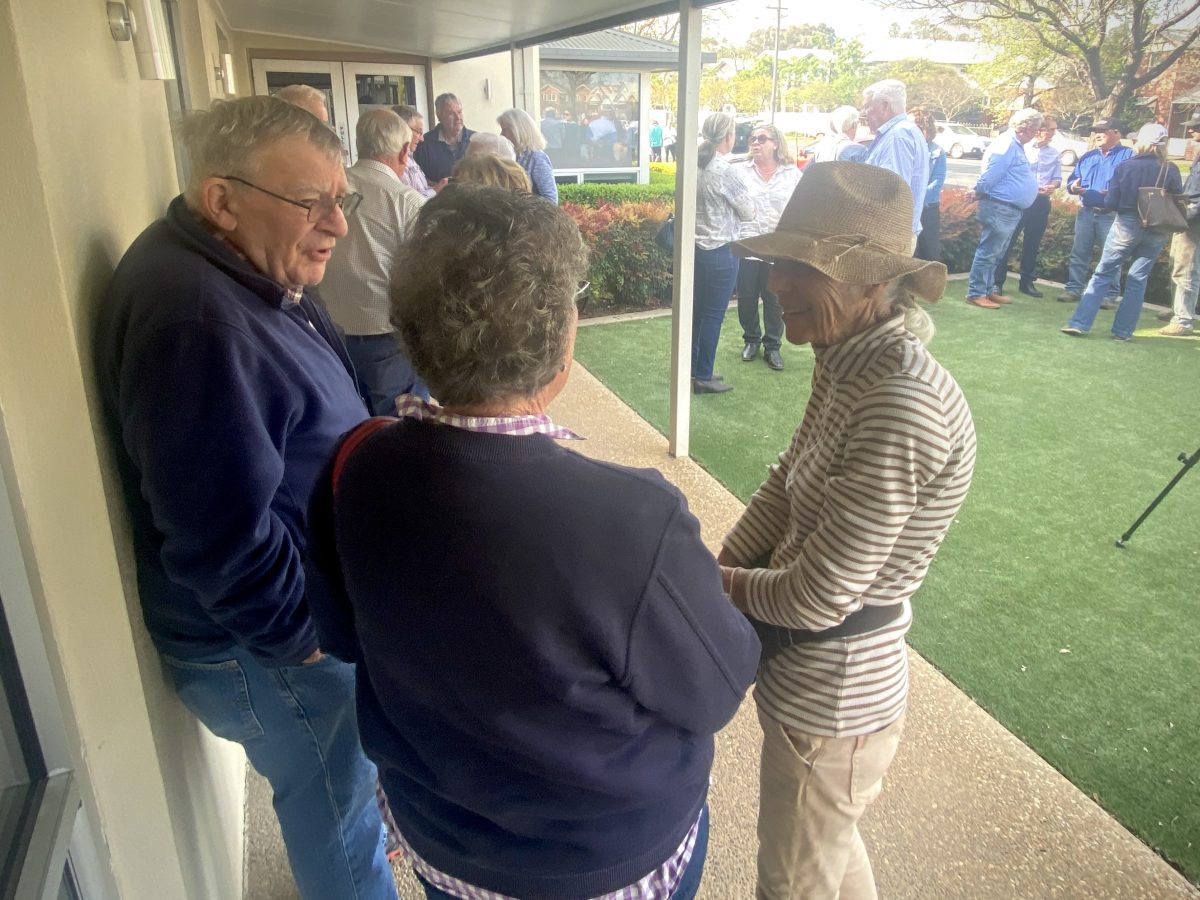
Rather than attend the NSW Water webinar, Murrumbidgee Farmers gathered in Wagga to discuss their response. Photo: Chris Roe.
Mundarlo landholder Deb Blackwell said the bureaucracy panicked.
“Once we started agitating and asking difficult questions, they cancelled the in-person meeting and made it into a webinar format,” she said.
“The problem with that is, firstly, people have put aside time and there are elderly people who cannot operate Teams and there are people who do not have connectivity.”
Ms Blackwell reached out to representatives from NSW Water to advocate for a rescheduled face-to-face meeting and more time for farmers to examine the proposed scheme.
“There appeared to be a concern that landholders were going to be aggressive,” she said.
“We told them that we did not wish to have small group meetings because it can only be open and transparent if we have everyone in one room.
“So, as an alternative to that, we offered to do the old town hall meeting, and to avoid any of their concerns, we said we could present questions in advance and we would co-chair the meeting with a landholder and a co-chair with the department.
“They have rejected that and they have said that after the online meeting, there will be no further consultation.”
Rather than log on to the webinar, around 30 local landholders gathered at the originally proposed venue at the Mecure in Wagga to consider their response.
Ms Blackwell said she and her husband John, an agricultural engineer and an expert in water management, submitted an extensive list of questions to NSW Water that remained unanswered.
“There are people who are not well enough informed to submit a submission by the 27th of October and this submission is so fundamental to the future of all of the farmers in the Murray Darling Basin,” Ms Blackwell said.
“With respect to the easements that we are told that they will take and acquire on our property for environmental flows – we are happy to discuss them – but we need more time and more information.”
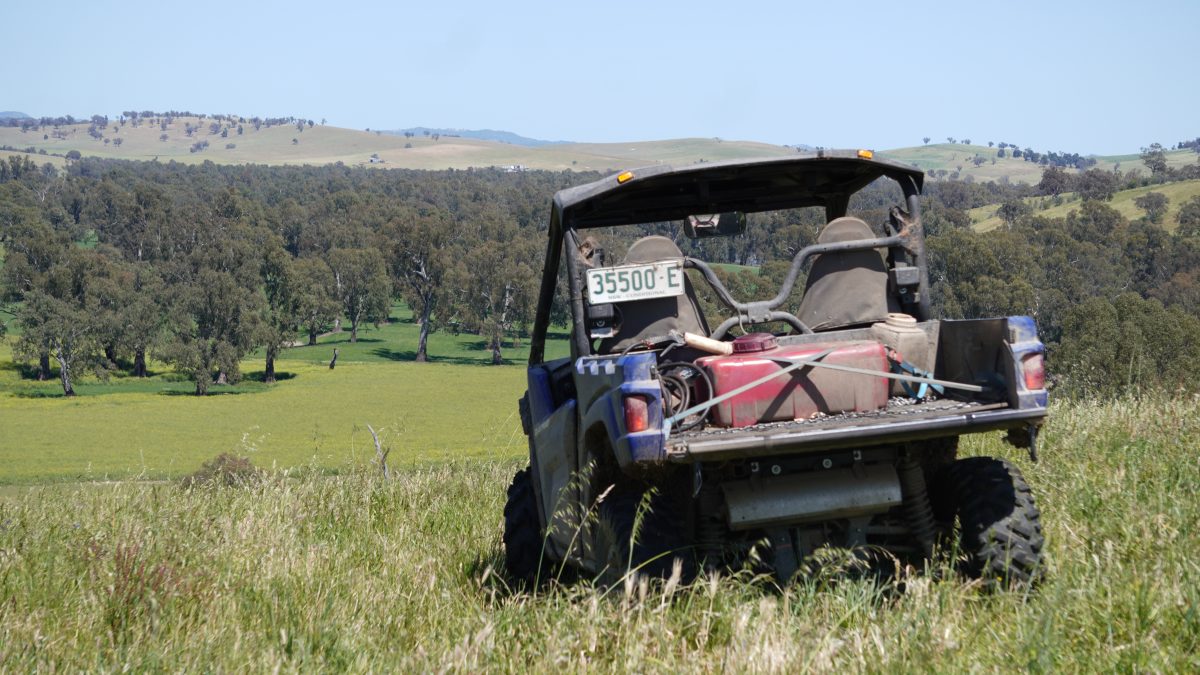
The Landholder Negotiation Scheme (LNS) will set the stage for the NSW Government to negotiate voluntary agreements with landholders to acquire flow easements. Photo: Chris Roe.
Mr Funnell said the lack of notice and scant information was typical of a “bureaucratic box-ticking exercise” and was “deceitful and misleading”.
“This is a breach of the fundamental property rights of any freehold land,” he said.
“The government is stampeding over the top of landholders and, once again, agriculture is under attack at every possible level.
“This actually needs to be a proper consultation process where our questions get answered.”
Among farmers’ concerns are the risk of disease and rubbish, the requirement of fencing, reduced access, loss of production and the devaluing of properties.
Ms Blackwell said it had the potential to cause “enormous trauma” to landholders on the river and must be handled properly.
“We need to ask the government to have another period of actual negotiation and it’s got to be a significant length of time so that we can respond with fully informed and sensible submissions to the Landholder Negotiation Scheme,” she said.
“We’ve proven they’re incapable of answering questions that have been given to them with a good three weeks’ notice so we need the negotiation to start again.”
The public exhibition period for the draft Landholder Negotiation Scheme will conclude at 11:59 pm (AEDT) on Sunday 27 October.
UPDATE: Region received a response from NSW Department of Climate Change, Energy, the Environment and Water.
A spokesperson said that they “want to ensure that the LNS Regulation provides a consistent process for landholders when negotiating enduring agreements for future environmental flow arrangements which is why we are speaking with stakeholders in person and remotely to capture local knowledge”.
The statement confirmed that meetings were held in Moree and Deniliquin along with webinars on 23 and 24 September and a recording of one of the webinars is available on the department’s website.
They said that the information sessions planned for Wagga Wagga had to be held online due to “logistical issues” and apologised for any inconvenience.
Another public webinar will be held on Tuesday 8 October to “provide a further opportunity to learn more about the LNS and we are aiming to be back in the community in the coming weeks to continue our engagement”.
A What We Heard report will be published with a summary of all submissions and will outline how feedback has been considered.







